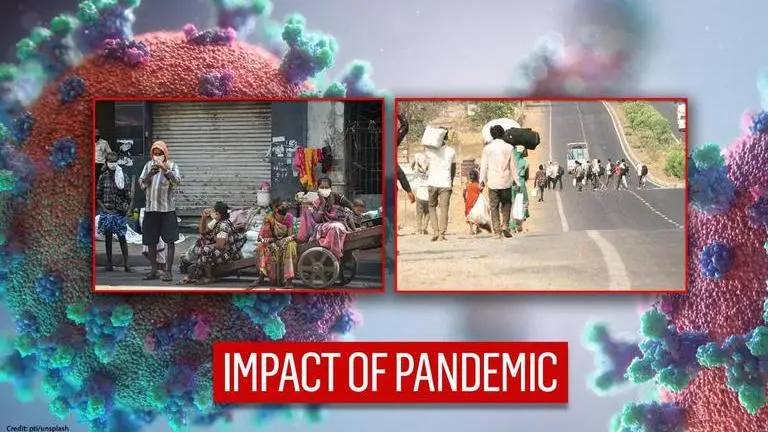Updated 20 February 2021 at 14:20 IST
COVID-19 Impact: over 1cr Indians might have to find new occupation by 2030, says Report
"Disproportionately" this impact will be felt on low-wage workers in retail, food services, hospitality & office admin the report by McKinsey Global Institute
- India News
- 2 min read

By 2030 as many as 18 million Indian workers will be forced to switch to a newer occupation because of COVID-19. The pandemic will have a lasting impact on labour workers, this report said on Friday. "Disproportionately" this impact will be felt on low-wage workers in retail, food services, hospitality and office administration, the report by McKinsey Global Institute, a think-tank, said.
An official statement reportedly stated that since companies have been forced to switch to a new dimension of work- physical proximity, the pandemic has disrupted the labour markets.
Because of the pandemic, three broad changes in consumer behaviour and business models will persist to varying degrees which include:
Advertisement
- the rise of remote work
- the increased embrace of e-commerce and virtual interactions
- the more rapid deployment of automation and AI (artificial intelligence)
This will lead to a whole reshuffle of jobs in the economy over a decade and around 100 million workers will have to find a new job, the report said. It added that 18 million of those will be from India. In India, the impact has been minimized because between 35-55 per cent of the country's workforce depends on outdoor production and maintenance arena, that includes sites, farms, residential, commercial grounds and other outdoor spaces.
Advertisement
The share of total work hours expended using physical and manual skills will decline by 2.2 percentage points, in India. While the time devoted to technological skills will rise 3.3 percentage points, it said.
The pandemic will make the reskilling challenge more intimidating and will heavily affect the most vulnerable workers. This creates a new urgency for companies and policymakers to help these workers gain the skills most needed in the future, Anu Madgavkar, partner at MGI said.
Susan Lund, a partner at McKinsey Global Institute (MGI), said that workers will need to prepare themselves to find work in an area that requires complex skills.
"The long term effects of the virus may reduce the number of low-wage jobs available, which previously served as a safety net for displaced workers. These workers will need to prepare themselves to find work in occupations with higher wages that require more complex skills, such as jobs in health care, technology, teaching and training, social work, and human resources," Susan added.
(With PTI Inputs)
Published By : Astha Singh
Published On: 20 February 2021 at 14:20 IST
